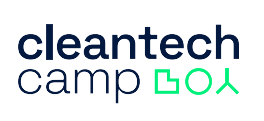He is a Mechanical Engineer and European patent attorney with more than 10 years of experience in Intellectual Property, both in energy and automotive multinationals and in ZBM Patents & Trademarks where he has advised clients since 2016.
Can you describe what the training you provide to the entrepreneurs who follow Cleantech Camp consists of?
We approach training from two points of view: one more generic and the other fully adapted to each of the groups. In the generic training, we carry out an approach to the various forms of protection of Intellectual Property, delving into trademarks and patents, since they are usually the aspects that arouse the most interest in the participants. While, in individualized training, we advise on the Intellectual Property strategy adapted to the needs of each project.
What tools do entrepreneurs have to protect their ideas?
Multiple tools are available to protect ideas and the most appropriate ones should be used for each aspect that you want to protect. For example, the name or logo of a product or company can be protected by a trademark, while an invention that solves a technical problem can be protected by a patent.
What is the most appropriate time in the project development phase to patent it?
A patent application must be filed before any disclosure of the invention, and preferably as soon as possible to reduce the risk that a competitor might file a patent application similar to ours before us. Generally, patents arising in the basic design or conception phases of the project are usually broader than those in the detailed development phases. Hence, my recommendation is to assess whether the different solutions to technical problems faced in the early stages of project development could be protected by a patent.
Does a patent protect an idea or project in its entirety?
A patent protects an invention that solves a technical problem but also meets some requirements, such as novelty and inventive step. Several patents may arise from the same project. Imagine the case of a project to design a new, more powerful wind turbine. In this case, the blades must be able to capture more energy from the wind and the generator must also be more powerful, which may involve larger and heavier blades and generators. The design team will have to face different challenges, such as designing lighter or more efficient components or transporting larger components. The technical solution to each of these challenges may be the subject of a patent. Therefore, several patents may arise during a project, each one protecting a different concept.
In general, what advice would you give an entrepreneur to protect his ideas?
First of all, they should get advised by an Intellectual Property professional to analyze a protection strategy that adapts to their needs. A well-protected trademark or a well-claimed invention is generally a key instrument for the project’s success in the market. The trademark will allow consumers or customers to distinguish the company’s products or services from those of their competitors and associate them with the desired quality. Regarding patents, obtaining good protection for an invention through one or more patents can provide a competitive advantage over its competitors or even be a direct source of income.
Secondly, the Intellectual Property strategy should be integrated within
the business strategy and should have measures to detect aspects that may be
protected, such as trademarks or patents, and to detect third party Intellectual
Property rights that could prevent the commercialization of our products or
services. In other words, not only should the results of a research or the product
development be protected, but also the risk that a product launch could
infringe any Intellectual Property right of a third party should be minimized,
which could imply that after all the development of the product, this product
cannot be commercialized or its commercialization involves very significant
extra costs.

